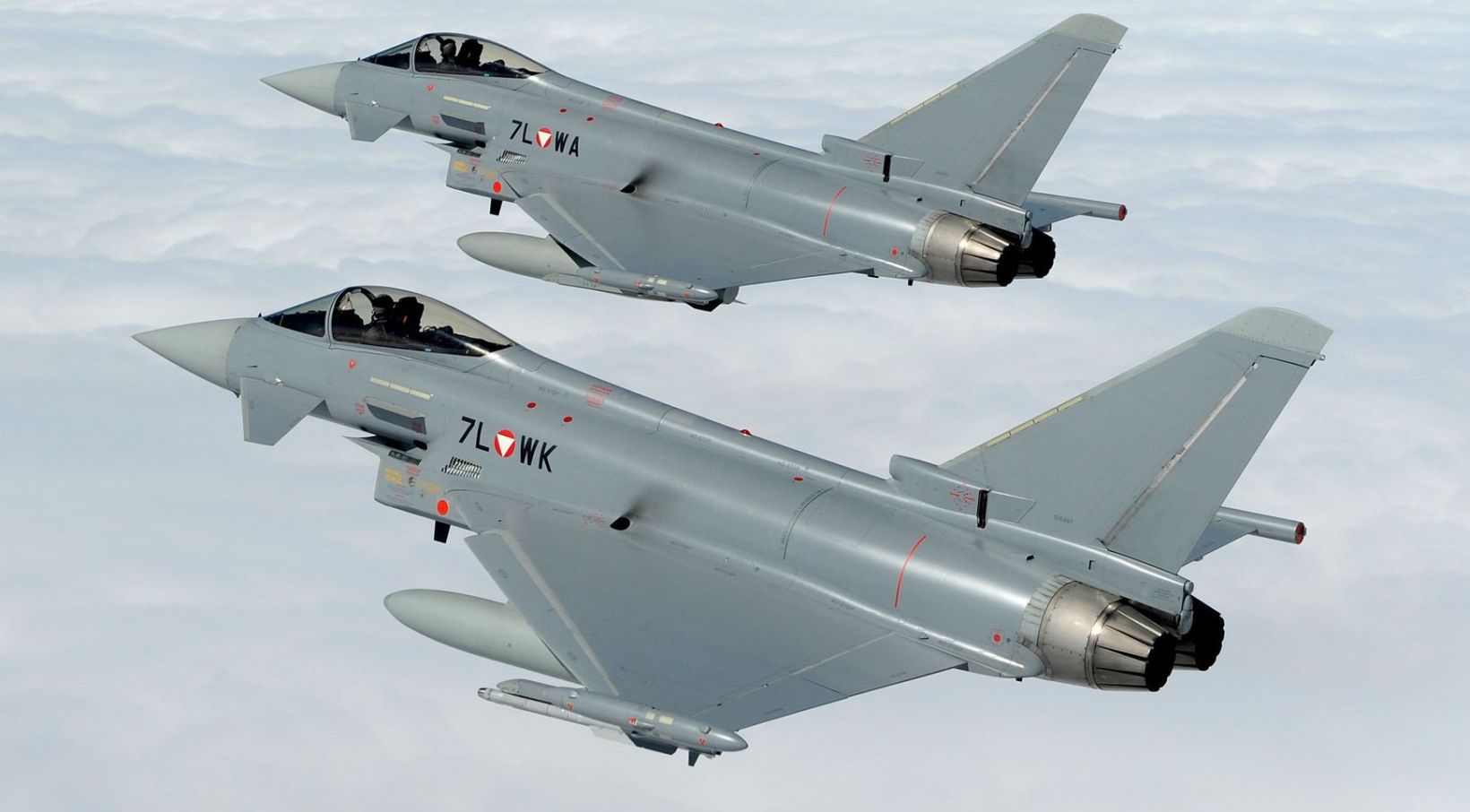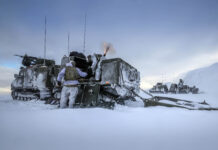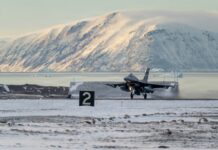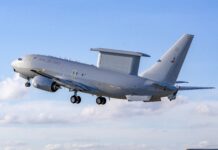Given the Ukrainian crisis, there have been questions raised if Austria too would join the NATO or continue their neutral status as enshrined in their constitution.
Though the Austrian Chancellor has reiterated Austria’s position claiming, “Austria was neutral, is neutral, and remains neutral”, its neutrality has now been questioned and criticised by many policy makers and opposition leaders.
Defence by Denial
It is interesting to note that a state system like Austria that was once a major player in European history, now boasts of a humble military capability. Given the Ukrainian crisis and Russia’s eastward expansion in Europe, Austria’s military capability now becomes a concern. Austria does not possess any cruise or ballistic missile capabilities, and hence, a credible ‘defence by denial’ capability becomes crucial to protect Vienna.
At the moment, Austria possesses anti-aircraft guns and short-range Surface to Air Missiles (SAMs). However, given that adversaries today could possess aircraft with stand-off capability, short range SAMs are not enough for the protecting of more than one large critical infrastructure by the Austrian Air Force. Moreover, these air defence systems do not pose any threat to ballistic or cruise missiles.
Austria realises the threats posed to its territory owing to the Ukrainian crisis and it has realised the insufficiency in its military spending till date. The chancellor has assured of a ‘significant increase’ in Austria’s defence spending now which can reach up to one percent of the Gross Domestic Product (GDP) from its current 0.74 percent. So far, however, the government has not come forward with numbers or timelines.
Despite the realisation of modernising its military, Austria lacks modern equipment and significant purchasing capabilities and its military modernisation program is underfunded. The recent Ukrainian crisis has made it clear that states without a credible air and missile defence capability would fall prey to coercive diplomacy of militarily powerful states. Not only this, the state could also become a subject to nuclear blackmailing by powerful states should it wish to make a foreign policy decision that goes against the interests of its militarily powerful adversaries.
Capability Gaps
Should Austria choose to let go off its neutral status in the near future and join NATO, there is little doubt in the fact that it would need credible air and missile defence capabilities to pose a credible threat to adversaries. Just days after Finland announced it wants to join NATO, Russia moved its nuclear-capable tactical ISKANDER missiles to the Finnish border.
In fact, Finland is reported to have spurred talks with Israeli government on possible cooperation on missile defence capabilities and could choose between Israeli BARAK and DAVID SLING system. Sweden on the other hand, is the first non NATO country to operate the US Patriot air and missile systems.
Switzerland too has expressed interest to acquire F-35 Joint Strike Fighters and PATRIOT systems from the United States to modernise their air power and air defence needs. Hence, states those states that maintained neutral status but are now keen on joining NATO, have focused on modernising their air power capabilities for air defence roles too, as well as acquired or seeking to acquire capabilities for air and missile defence roles.
Hence, if Austria wants to let go off its neutral status, modernising its air and missile defence capabilities remain a crucial task.
Austria in NATO Activities
Despite not being a member of NATO, and opposing NATO membership, Austria has actively supported NATO in peace keeping operations in places like Bosnia, Herzegovina and Afghanistan. These activities are conducted by Austria under the NATO-Austria Partnership for Peace (PfP) framework which was joined by Vienna in 1995.
Austria has supported NATO in destruction of mines and munitions in places like Albania, Kazakhstan, Montenegro, Serbia and Ukraine, as well as providing support and preparedness for fighting accidents and disasters that could be led due to chemical, biological, radiological or nuclear agents and also providing support in disaster relief. Austrian researchers are developing an innovative detection tool for the SARS-COV-2 virus and other toxic bio-agents in workplaces.
Hence, there is always scope for Austria to participate in NATO’s air and missile defence architecture with or without NATO membership or pursue their own defence capabilities. However, owing to the limitations in its defence modernisation process, it is conducive for Austria to become a part of NATO air and missile defence capabilities. It must be noted that Austria has a memorandum of understanding (MoU) on Command & Control (C2) sharing of GBAD system with NATO under a twelve nation MoU framework.
Austria’s Views on NATO Missile Defence System
When the Obama administration in the United States reversed the Bush policy on the European Phased Adaptive Approach, and chose to develop and deploy transportable Ballistic Missile Defence (BMD) capability that could be deployed across the world at short notices during times of crisis rather than depending on silo based interceptors in Poland as was planned by Bush administration , it must be noted that Austria’s views on both cancellation of silo-based interceptors in Poland and decision to deploy mobile BMD capability both remained positive and praised the policy reversal process.
Possible Problems
However, while Austria could show keen interest in joining breader NATO air and missile defence framework, NATO members could oppose it with a veto. In 2017, Turkey for instance, vetoed Austria’s cooperation with NATO owing to the fact that Austria blocked Turkey’s bid to join the European Union. Not only this, Turkey is also opposing Finland and Sweden’s NATO membership owing to Turkey’s accusation of a Finnish and Swedish support to the Kurdistan Workers’ Party (PKK) inside Turkey, a group Turkey labels as terrorists. Hence, if Austria wants to participate in air and missile defence framework of the NATO, it may meet some opposition from NATO members like Turkey.




![The role of logistics in the Bundeswehr: A foundation for the planning and conduct of operations [Bundeswehr]](https://euro-sd.com/wp-content/uploads/2026/01/Bundeswehr-1-Kopie-218x150.jpg)
![Integrated logistics support data: Operational availability and lessons learned Fig 1: General data structure for a complex system of systems. [Guy Langenaeken]](https://euro-sd.com/wp-content/uploads/2026/01/General-Data-Structure-for-CSoS_Guy-Langenaeken-Kopie-218x150.jpg)

![System life cycle management: The next step to ensuring performance : A presentation from the NATO LCM 2025 conference in Brussels. [MRV/Javier Bernal Revert]](https://euro-sd.com/wp-content/uploads/2026/01/1-NATO-LCM-2025_MRVJavier-Bernal-Revert-218x150.jpg)


![2025 in the Western Balkans: A year-end SITREP Soldiers from the Czech company, part of the EUFOR Multinational Battalion, conducted a series of joint training exercises in Mostar alongside operators from Bosnia’s State Investigation and Protection Agency (SIPA). [EUFOR BiH]](https://euro-sd.com/wp-content/uploads/2025/11/Handshake_EUFOR-BiH-218x150.jpg)
![Stratus symbol Initially deployed during Operation Granby, the United Kingdom’s contribution to Operation Desert Storm in 1991, the RAF’s air-launched anti-radiation missile proved to be a radar killer. The missile remained in service, and in the RAF’s inventories, until 2013. [Thomas Withington]](https://euro-sd.com/wp-content/uploads/2025/11/ALARM-Thomas-Withington-Kopie-218x150.jpg)
